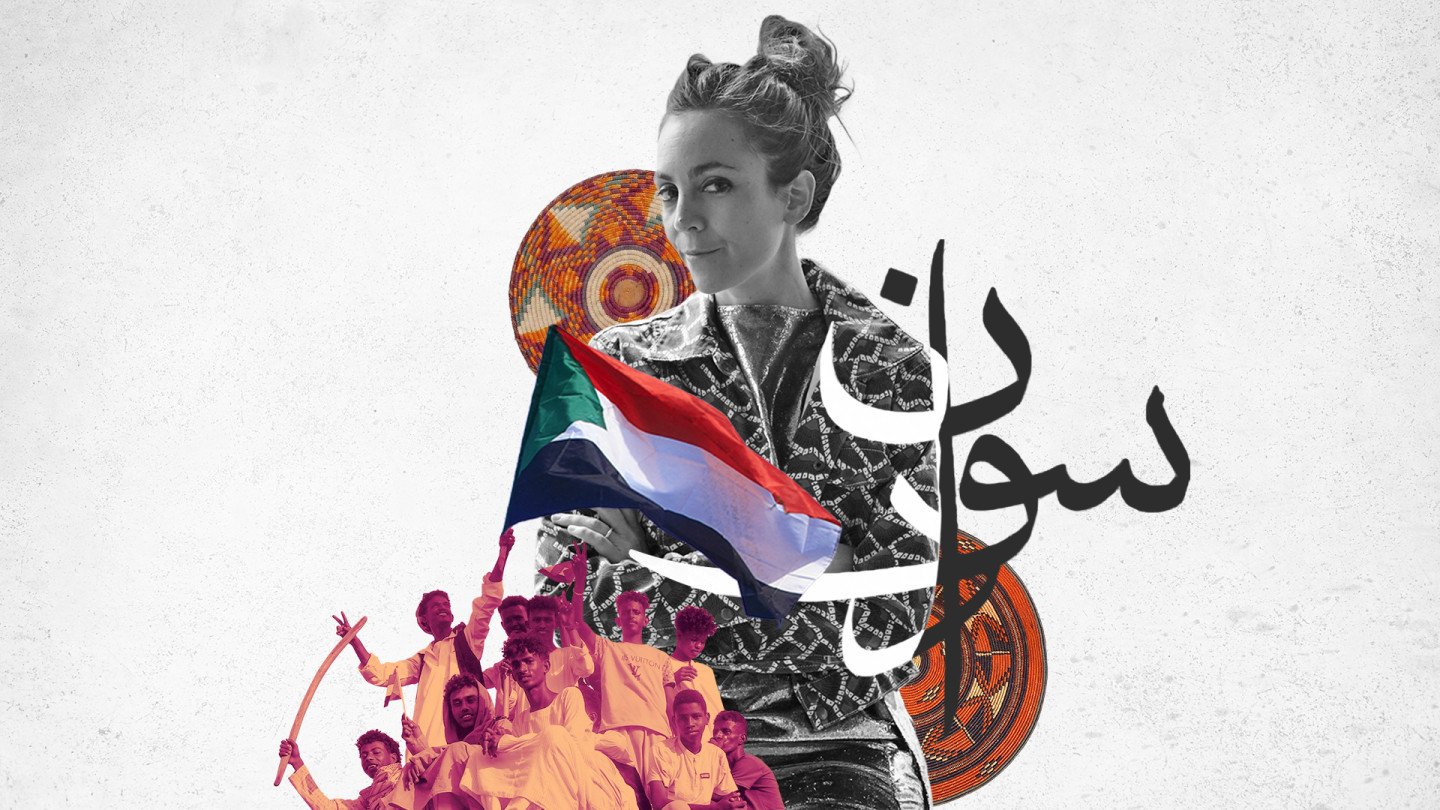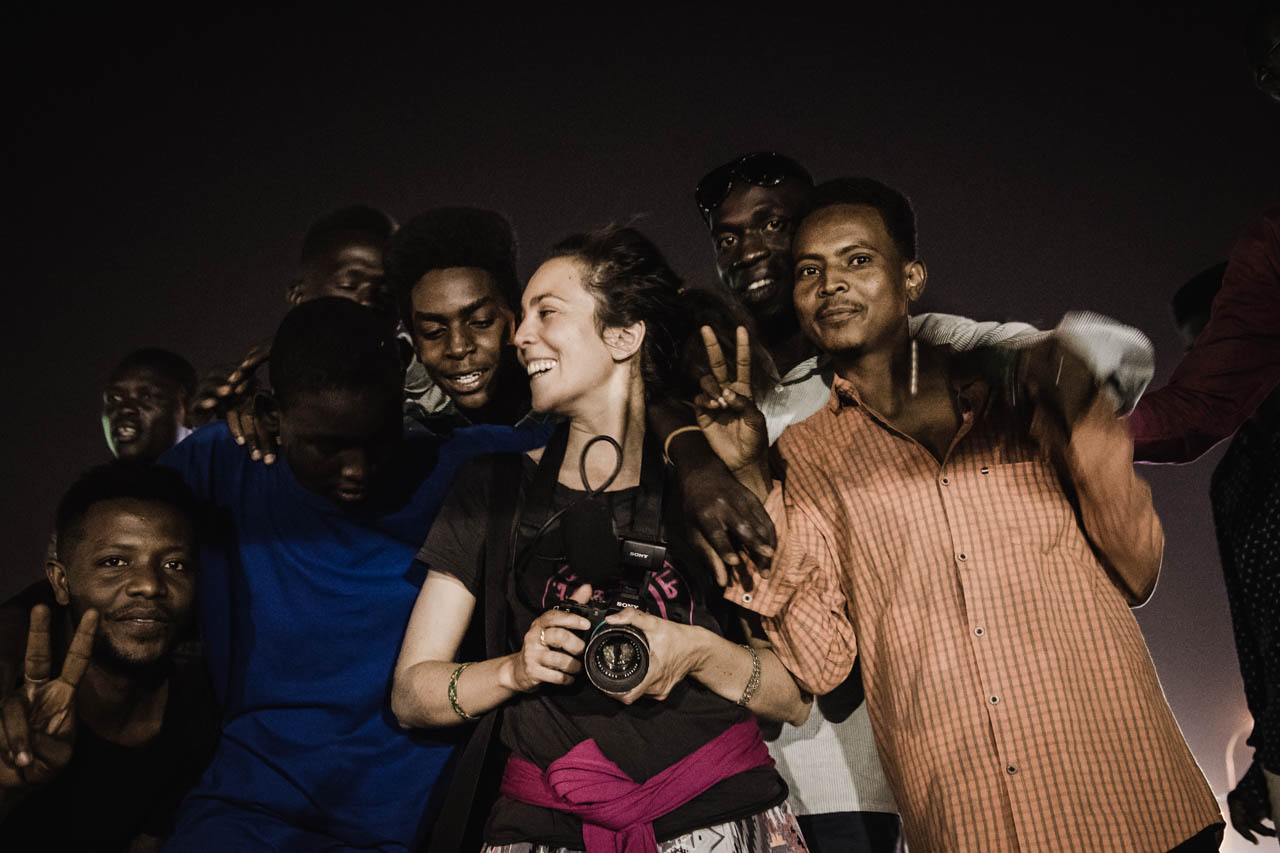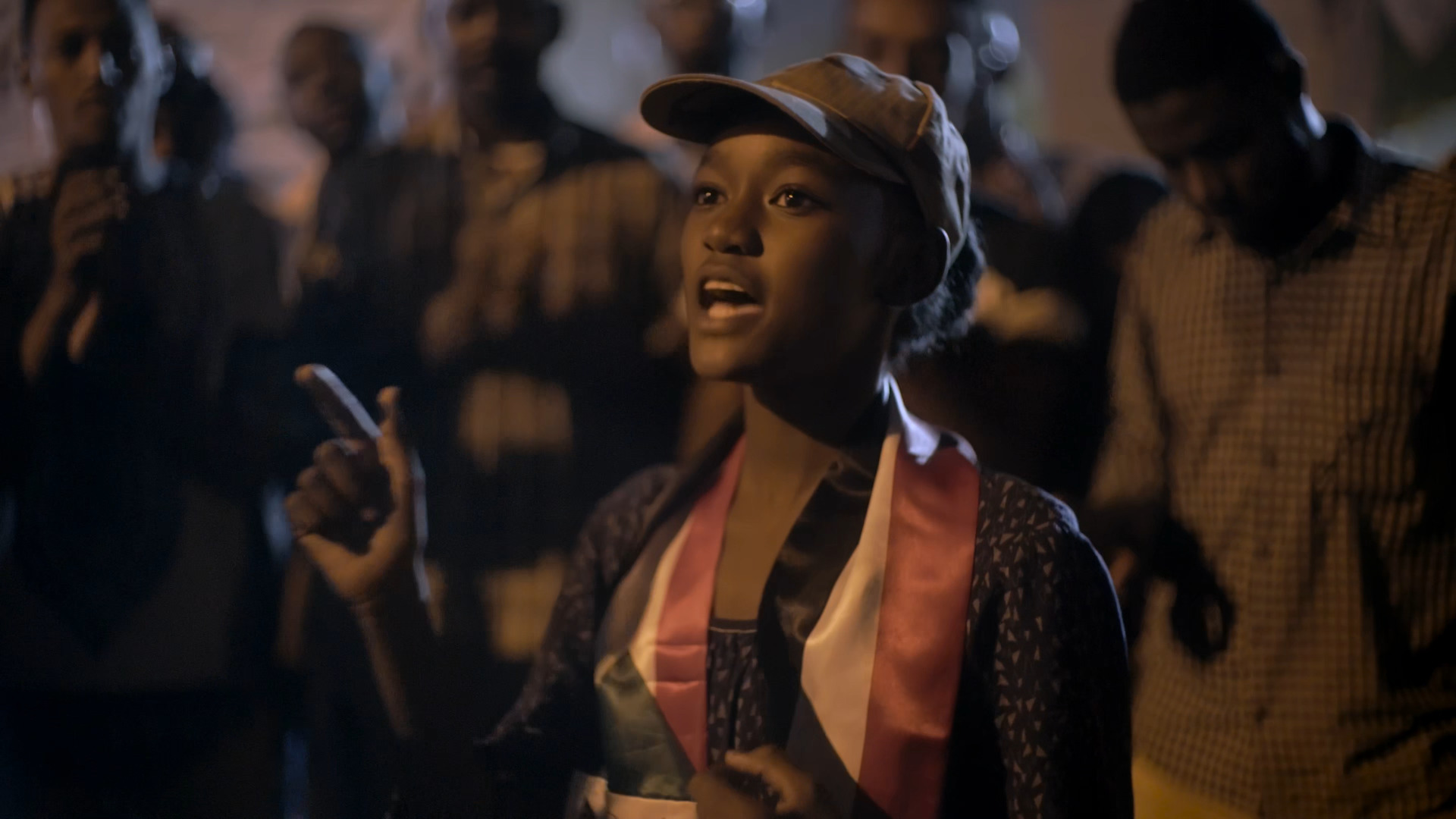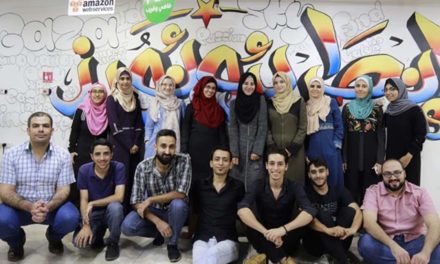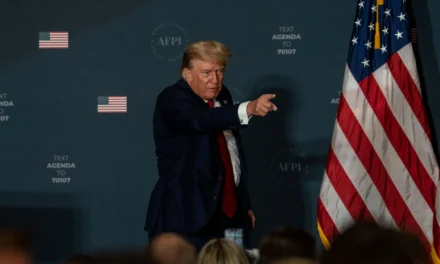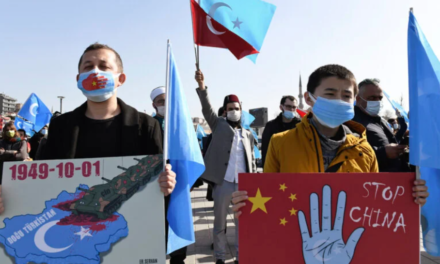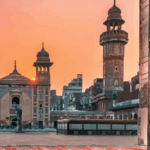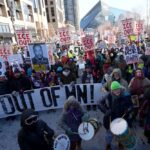Sudan, Remember Us chronicles the societal efforts of the Sudanese people to claim democracy for their country, and the devastating political setbacks that followed.
The documentary begins with the 2019 overthrow of former president Omar al-Bashir. It depicts the military crackdown that followed, which ultimately led to the catastrophic civil war with the RSF and the humanitarian crisis unfolding today.
Acclaimed French filmmaker Hind Meddeb gives voice to the people of Sudan enduring continuous turmoil, poignantly allowing them to convey their undying aspirations for freedom, peace, and justice. Through the film, the Sudanese narrations take centre stage.
In anticipation of the release of Sudan, Remember Us in the United States on 8 August, The New Arab spoke with Hind about her filmmaking process, what she hoped to achieve, and working with Watermelon Pictures to distribute the film in the US.
“I cannot represent Sudan,” Hind tells The New Arab, “but what I did with this film is a love letter to Sudan. While I discovered this country, I fell in love with the people, and I shared their dreams.”
Hind, of Tunisian, Moroccan, and Algerian descent, aligns her own people’s political struggles with those of the Sudanese. “I’m also hoping for what they were hoping for my own country, and I felt very close to them.”
Hind is pictured in the centre
Throughout the filmmaking process and release tour, Hind has been adamant that her Sudanese subjects speak for themselves, and that she is not the narrator but instead opening the door for more interest in Sudan and its people.
“What I feel about this film is that it’s not me representing Sudan,” she says. “It’s more that the film is a precious memory that can be used to raise awareness about Sudan and make people want to learn about the country. There are so many things to learn about Sudan that are not in the film, but the film has opened a door to this.”
Hind recounts meeting one of her main subjects, Shajane, in Paris around 2016, during the city’s surge in refugees from North Africa and other regions.
At the time, Hind was working to help people with translating their papers. She met Shajane and the two became friends before Shajane moved back to Sudan.
“I always say that Sudan, Remember Us is a story of friendship,” Hind tells The New Arab.
She explains the collaborative nature of the film, which extended to the press tour. “It belongs to the Sudanese people who are in the film and came on tour with me. Shajane accompanied me to the Venice Film Festival and the Marrakech Film Festival. Mozamil, the painter featured in the film, joined me in the Netherlands. We presented the film to the people featured in it and those who worked on it at the Doha Film Festival last November, where we were all invited. It was really, really powerful.”
Hind notes that it was her meeting with Sudanese people in France that motivated her to travel to Sudan, especially in light of the revolution.
“My Sudanese friends in Paris pushed me to go to their country. After the dictator [Omar al-Bashir] fell, they said to me, ‘You have to go. You have to see our country, understand where we come from, and we’ll help you. We’ll give you the phone numbers of people, of our friends there.’”
Sudan, Remember Us’ begins with the 2019 overthrow of former president Omar al-Bashir
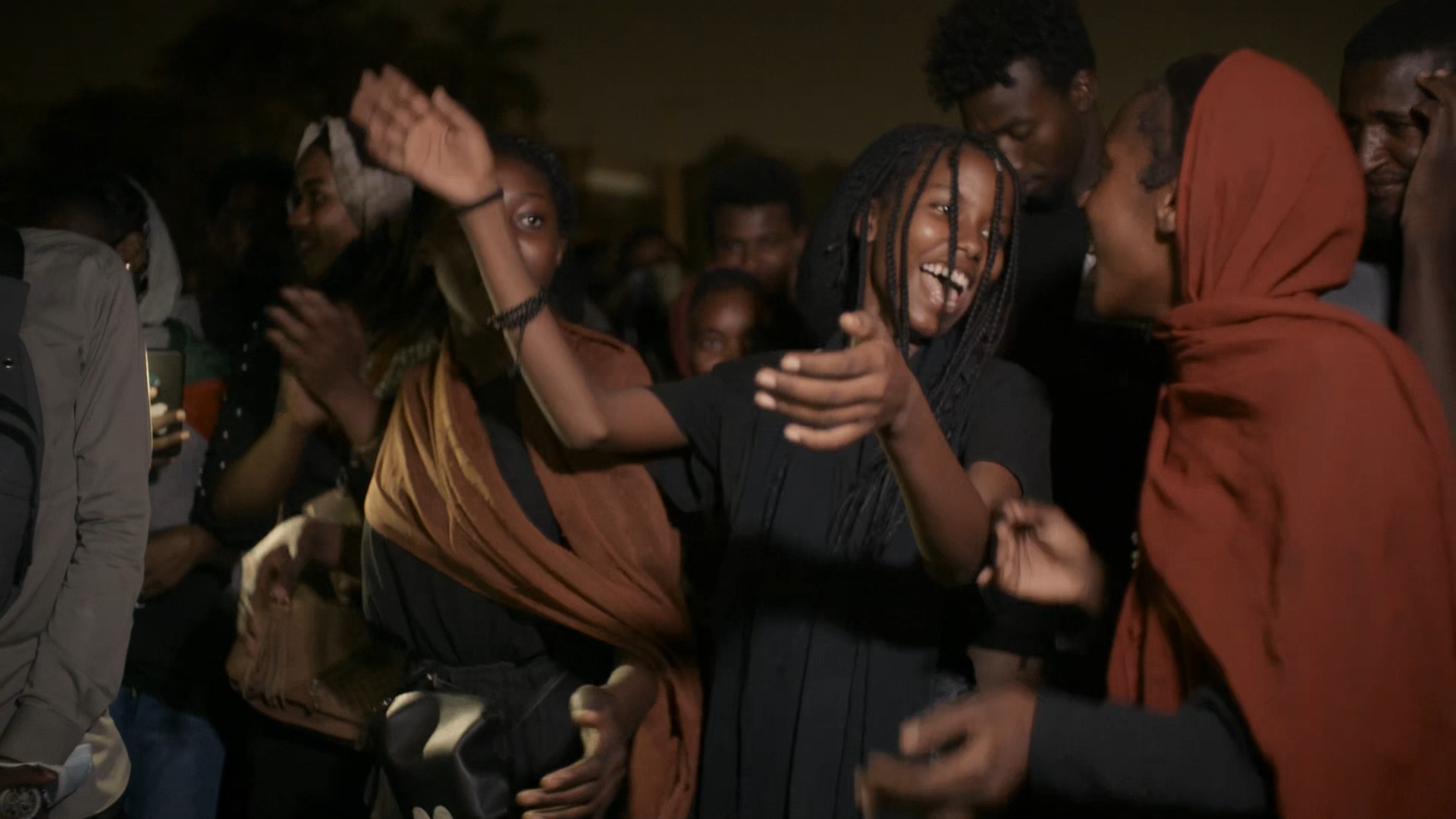
Art, music, and poetry play a significant role in ‘Sudan, Remember Us’
‘We have a story to share’
Hind didn’t intend to start the documentary when she first travelled there in 2019. It was only her genuine interest in the country, sparked by her new friendships, that spurred her. But with her journalistic instincts and the people asking her to share their stories, Sudan, Remember Us gradually took shape.
Hind met the rest of her interview subjects, Maha, Muzamil, and Khatab, on her travels in Sudan, along with others who wanted to share their stories.
“A lot of people I didn’t know, seeing me with a camera, saw this as a window to the rest of the world. So they came to me and said, ‘We have a story to share.’ And so it was very overwhelming and incredible, and I met the people who are in the film.”
The Khartoum Massacre on 3 June 2019, by military government forces, was a turning point for Hind, increasing the importance of her documentary and highlighting Sudan.
“I thought it was too important to raise these beautiful voices,” she says. “Because unfortunately, in the news, it was very, very undercover, and the Sudanese people were kind of made invisible. Also, during the time of the dictator, the country was closed.”
“Sudan was on the list of terrorist countries because of the Al-Qaeda attack on the American embassy in Nairobi in the 90s, which was organised from Sudan. Because of all these things, the people of Sudan were not on the map. And after meeting these incredible people and seeing the level of violence that could happen to them, I really thought I had a duty. I have to bring these voices out and make them heard all over the world as much as I can.”
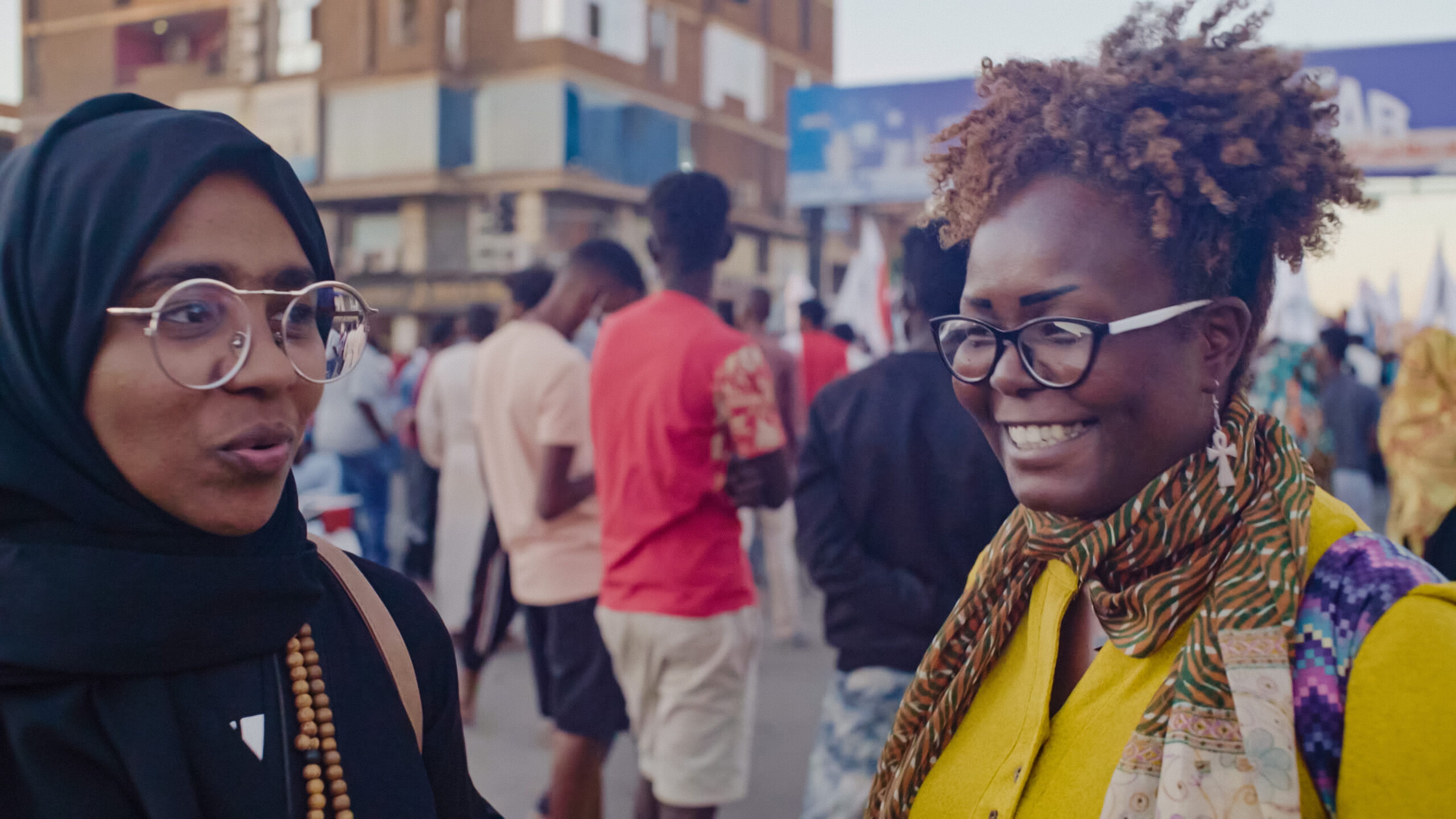
‘Sudan, Remember Us’ is now showing in select theatres across the US
Striving for solidarity
Art, music, and poetry play a significant role in Sudan, Remember Us, acting as integral threads that hold the narrative together. Hind says that this was unintentional from the start, as she was merely recording what was there.
“It’s like the characters of the film — I didn’t choose them; they chose me. It’s the same with poetry and music. It was literally everywhere all the time. Poetry and music, the Sudanese to recite and write and say poetry as they breathe.”
As the Sudanese people continue to fight oppression amid state repression, civil war, and forced starvation, Hind says that hope remains abundant as the people will always resist.
“The goal of the military in general and the militias is to make people believe that it’s impossible to rise, that it’s impossible to have peace or democracy or a citizen state. That’s why I made this film, because when you look at the storytelling of the military — and they won, in a way, the storytelling in the media — they’re just spreading death and chaos. They’re destroying the hope.
“But if you look at the history of mankind, war cannot last forever. Every war had an end, and peace always finally came back. Because as human beings, we are not made to live in death and war. This is not something natural, and this is not what people want.”
Hind brings up the Second World War as a historical analogue to the struggles of the Sudanese now. “There were 60 million people who died in [the war], and we seem to forget about that. When you look at this period, what is left from this time are the writings of Stephen Zweig, of Paul Celan, writing about the Jewish people being killed. So I think cinema also plays a big role in surrendering all this pain, all this death, and trying to give it significance.”
Continuing to speak on history, Hind notes the long record of Sudanese resistance to invasion, occupation, and colonisation. “Ottoman Egypt invaded Sudan, the Romans invaded Sudan, the British occupied Sudan, and the Sudanese people always fought to stay independent and reclaim their country. And it’s because Sudan is so rich in the countryside. There is land grabbing by the Emirates. There are so many reasons behind this war.”
Nevertheless, Hind looks forward to the film’s release in the US, knowing how many Sudanese and other immigrants from the SWANA region will relate to what they see.
“What is really special about America is that the whole world lives in America,” she says. “And when I presented the film in New York, but also in Boston, in Orlando, there were people in the audience from Syria, Lebanon, Iraq, and elsewhere who came to America to start a new life. They recognised themselves in the Sudanese fight and were so surprised to feel so close to the Sudanese people.”
With Sudan, Remember Us, Hind hopes to solidify this solidarity. “I hope I can make all the people of the Middle East understand that they have the same past, that we should fight together. We should have solidarity with each other. And I know that there is a great audience in America for the film, not only the Sudanese community, but all these people who have been trying to escape war.”
‘We have to remember them’
On working with Watermelon Pictures, she recalls meeting Munir Atalla, the Head of Production and Acquisitions, who was responsible for the exhibition at Columbia University, where they had a screening of the film.
Bonding over shared values and ethics, Hind knew his company would make an ideal partner. “This is an incredible team. I was also admiring them while they were campaigning for the Oscars with From Ground Zero.”
Hind continues to express her admiration for Watermelon Pictures and their filmography. “When you admire a company and then this company says they want to have the film, it was really, really incredible. It’s like a dream, and we’re on the same page. We do these things for the same reasons. I attended the world premiere of The Encampments in Copenhagen because I was there with my own movie. It was so exciting; I loved this film for its storytelling, just as I do with Sudan. It’s for all these reasons I’m very proud to be distributed by Watermelon.”
In the title of the documentary, Hind references the last poem spoken in the film.
“At the end of the film, you hear the voice of the poet Sheikhoon. He wrote a very long poem called Chapters of the Revolution where he’s telling the whole story of the Sudanese revolution. He’s giving a voice to the different protagonists of this revolution.”
“The poem that I chose is the part where someone who was killed by the military in a demonstration says, ‘When peace will come back, remember me. When you will reconstruct the country. Remember me. When you will plant a tree and it will give delicious fruits. Remember me.’”
“And this is really the idea: all these young people who died for freedom, who were part of this revolution, we have to remember them. They didn’t die for nothing. They did all this because they deeply believed they deserved to live in their own country, and they are reclaiming a country that has been stolen for so many years.”
With Hind’s documentary facilitating their voices, that reclamation of Sudan for its people may just take a step forward.
Sudan, Remember Us is now playing in select theatres across the US
Swara Salih is a writer and podcaster who writes for several outlets, including The Nerds of Color, But Why Tho?, and Nerdist. He co-hosts The Middle Geeks podcast, which covers all things SWANA/MENA representation
Follow him on BlueSky:@spiderswarz.bsky.social
